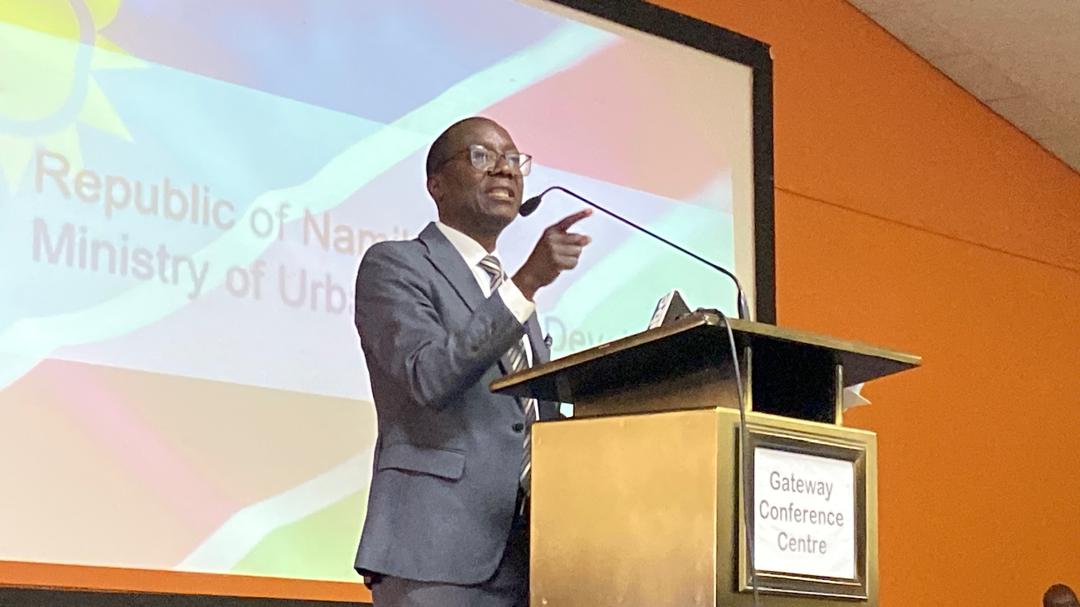THE Abattoir Association of Namibia (AAN) reacted vehemently to the draft report of a consultancy team of PriceWaterhouseCoopers on certain aspects of the Namibian Small Stock Marketing Scheme.
Their objections to the methodology of the investigation as well as the conclusions and recommendations were first set out in a submission to the Minister of Agriculture, Water and Forestry dated 18 October 2007 and reiterated in a letter addressed to the Chairman of the Meat Board on 21 October 2007. In both instances AAN rejects the entire report and demands that it be withdrawn on the strength of the arguments advanced by the abattoirs alone.This amply illustrates the complete lack of understanding and sensitivity on the part of AAN for the present state of turmoil in both production and marketing of sheep in Namibia.Moreover, their statement bristles with unproven allegations presented as fact, unsound conclusions and purely sophistic arguments.It is seen as highly irresponsible of any role player to use such a rickety platform to flatly reject the PWC Report.It smacks of arrogance if not opportunism.There may be valid reasons to differ from both methodology and conclusions in the Report as is almost always the case in investigations of this nature.In broad perspective it must however be borne in mind that the report was compiled by a fully qualified accountant attached to a firm of world repute, assisted by a highly regarded professor in Agricultural Economics.The responsible approach would have been to accept the Report as a suitable point of departure for further deliberations towards a solution acceptable to all major role players.The Ministry concerned and the official representative body of the live stock producers have both done so and the vast majority of sheep producers are in agreement.AAN should immediately follow suite, withdraw its ill-considered statements and apologise for it’s derogatory remarks and insinuations toward all concerned.The objective of this analysis is not to examine and comment in detail on all questionable aspects of AAN’s submission.This would entail an extremely lengthy task for there is hardly a single sentence or phrase that is not disputable.At the same time this unfortunate document cannot be allowed to stand unchallenged as it presents a completely skewed and biased picture of the subject matter at stake.The following are only some random remarks.Value-adding, which is indeed a corner-stone of the policy that led to enforced local slaughter of sheep, is mentioned only once in the entire submission and merely in passing.Nowhere does AAN give any indication that the abattoirs have succeeded to add any value whatsoever to sheep slaughtered locally.Such information, independently verified, would have greatly assisted the evaluation of the Small Stock Scheme from a national perspective.One is tempted to suggest that “value-adding” is being used purely as a politically expedient cliché in order to obscure the abattoirs’ failure to deliver.It must be recorded here in unequivocal terms that farmers at large fully support the principles of value-adding and job creation.Whoever denies this, either openly or through innuendo, does so out of ignorance or malice.Under the Small Stock Scheme, however, producers are suffering grievous financial losses without there being a single iota of proof that value is being added overall.In the same paragraph, AAN states that “substantial capital amounts have been invested in state of art abattoirs and tanneries, with the strategic view of recouping these over long term investment periods” and concludes that it is an “undisputable reality” that such strategic investments would be “ruined” if export of live stock were to be “reintroduced by just paying a nominal levy.”If the investments the abattoirs so pride themselves on, were to be balanced against the collective investment livestock producers have sunk in the land in order to create equally state of art production units, the abattoirs’ share would comprise a mere drop in the ocean.Recouping is not the goal for most farmers: all they desire is a reasonable return on their investments and labours.The proposed additional levy of “approximately N$29.00” in the Weck Report can certainly not be described as “nominal” by any stretch of the imagination.Based on a return of between N$300.00 and N$450.00 per unit, this equates to an additional cost of 6% -9% ad valorem the sheep producer would have to fork up.Are the directors and personnel of the abattoirs prepared to sacrifice the same percentage of their gross remuneration in order to maintain the status quo? Will the same soon be expected of all producers of all other agricultural commodities? By stating categorically that the ruin of the entire abattoir industry will be an “undisputable reality” if producers are permitted to export live sheep by paying an additional N$29.00 a head up front, AAN clearly admits that the local facilities can not, neither now nor in the foreseeable future, pay farmers a “fair and competitive price” for their stock.The levy would already diminish the price obtained in South Africa by approximately N$1.71/kg on top of the cost of transport and loss of weight over the longer distances.If local abattoirs cannot match that, there is no logic in efforts to artificially keep them afloat.AAN emphasises that measures to ensure full capacity for the abattoirs was a precondition for their participation in the industry.This was not the only precondition on which the Scheme was based.Some of the other salient conditions were that: * The Meat Board would monitor prices paid by local abattoirs in order to ensure that farmers be “paid a fair and competitive price for locally slaughtered small stock”; * The relevant Ministries would as a matter of priority “ensure that Namibia’s case with respect to EU bone-in exports succeeds”; and * Markets for processed fat tail sheep, venison, goats and karakul pelts be “investigated and negotiated.”None of these have been realised which, from the producers’ perspective, amounts to breach of contract.As said before, the entire 8-page document bristles with disputable statements debatable inferences and unsound conclusions, much of which could be turned around on AAN itself (price variance analysis, seasonal market fluctuations, etc) but it seems a waste of time to concentrate on trivial detail.Resolution of the problem is a matter of urgency.First of all, an interim arrangement must be agreed upon to put an end to the bloodletting of producers, big and small, commercial and communal.Thereafter a final solution must be found wherein the absolutely fundamental role of the primary producer is acknowledged and properly ensconced.Unless that is achieved soon, a flight of capital and skills from sheep farming is a foregone conclusion.Should AAN as representative body of the abattoirs refuse to participate with honesty and an open mind, the remaining role players should not and can not allow the process to be delayed by such intransigence.Ewert BenadeIn both instances AAN rejects the entire report and demands that it be withdrawn on the strength of the arguments advanced by the abattoirs alone.This amply illustrates the complete lack of understanding and sensitivity on the part of AAN for the present state of turmoil in both production and marketing of sheep in Namibia.Moreover, their statement bristles with unproven allegations presented as fact, unsound conclusions and purely sophistic arguments.It is seen as highly irresponsible of any role player to use such a rickety platform to flatly reject the PWC Report.It smacks of arrogance if not opportunism.There may be valid reasons to differ from both methodology and conclusions in the Report as is almost always the case in investigations of this nature.In broad perspective it must however be borne in mind that the report was compiled by a fully qualified accountant attached to a firm of world repute, assisted by a highly regarded professor in Agricultural Economics.The responsible approach would have been to accept the Report as a suitable point of departure for further deliberations towards a solution acceptable to all major role players.The Ministry concerned and the official representative body of the live stock producers have both done so and the vast majority of sheep producers are in agreement.AAN should immediately follow suite, withdraw its ill-considered statements and apologise for it’s derogatory remarks and insinuations toward all concerned.The objective of this analysis is not to examine and comment in detail on all questionable aspects of AAN’s submission.This would entail an extremely lengthy task for there is hardly a single sentence or phrase that is not disputable.At the same time this unfortunate document cannot be allowed to stand unchallenged as it presents a completely skewed and biased picture of the subject matter at stake.The following are only some random remarks.Value-adding, which is indeed a corner-stone of the policy that led to enforced local slaughter of sheep, is mentioned only once in the entire submission and merely in passing.Nowhere does AAN give any indication that the abattoirs have succeeded to add any value whatsoever to sheep slaughtered locally.Such information, independently verified, would have greatly assisted the evaluation of the Small Stock Scheme from a national perspective.One is tempted to suggest that “value-adding” is being used purely as a politically expedient cliché in order to obscure the abattoirs’ failure to deliver.It must be recorded here in unequivocal terms that farmers at large fully support the principles of value-adding and job creation.Whoever denies this, either openly or through innuendo, does so out of ignorance or malice.Under the Small Stock Scheme, however, producers are suffering grievous financial losses without there being a single iota of proof that value is being added overall.In the same paragraph, AAN states that “substantial capital amounts have been invested in state of art abattoirs and tanneries, with the strategic view of recouping these over long term investment periods” and concludes that it is an “undisputable reality” that such strategic investments would be “ruined” if export of live stock were to be “reintroduced by just paying a nominal levy.”If the investments the abattoirs so pride themselves on, were to be balanced against the collective investment livestock producers have sunk in the land in order to create equally state of art production units, the abattoirs’ share would comprise a mere drop in the ocean.Recouping is not the goal for most farmers: all they desire is a reasonable return on their investments and labours.The proposed additional levy of “approximately N$29.00” in the Weck Report can certainly not be described as “nominal” by any stretch of the imagination.Based on a return of between N$300.00 and N$450.00 per unit, this equates to an additional cost of 6% -9% ad valorem the sheep producer would have to fork up.Are the directors and personnel of the abattoirs prepared to sacrifice the same percentage of their gross remuneration in order to maintain the status quo? Will the same soon be expected of all producers of all other agricultural commodities? By stating categorically that the ruin of the entire abattoir industry will be an “undisputable reality” if producers are permitted to export live sheep by paying an additional N$29.00 a head up front, AAN clearly admits that the local facilities can not, neither now nor in the foreseeable future, pay farmers a “fair and competitive price” for their stock.The levy would already diminish the price obtained in South Africa by approximately N$1.71/kg on top of the cost of transport and loss of weight over the longer distances.If local abattoirs cannot match that, there is no logic in efforts to artificially keep them afloat.AAN emphasises that measures to ensure full capacity for the abattoirs was a precondition for their participation in the industry.This was not the only precondition on which the Scheme was based.Some of the other salient conditions were that: * The Meat Board would monitor prices paid by local abattoirs in order to ensure that farmers be “paid a fair and competitive price for locally slaughtered small stock”; * The relevant Ministries would as a matter of priority “ensure that Namibia’s case with respect to EU bone-in exports succeeds”; and * Markets for processed fat tail sheep, venison, goats and karakul pelts be “investigated and negotiated.”None of these have been realised which, from the producers’ perspective, amounts to breach of contract.As said before, the entire 8-page document bristles with disputable statements debatable inferences and unsound conclusions, much of which could be turned around on AAN itself (price variance analysis, seasonal market fluctuations, etc) but it seems a waste of time to concentrate on trivial detail.Resolution of the problem is a matter of urgency.First of all, an interim arrangement must be agreed upon to put an end to the bloodletting of producers, big and small, commercial and communal.Thereafter a final solution must be found wherein the absolutely fundamental role of the primary producer is acknowledged and properly ensconced.Unless that is achieved soon, a flight of capital and skills from sheep farming is a foregone conclusion.Should AAN as representative body of the abattoirs refuse to participate with honesty and an open mind, the remaining role players should not and can not allow the process to be delayed by such intransigence.Ewert Benade
Stay informed with The Namibian – your source for credible journalism. Get in-depth reporting and opinions for
only N$85 a month. Invest in journalism, invest in democracy –
Subscribe Now!









